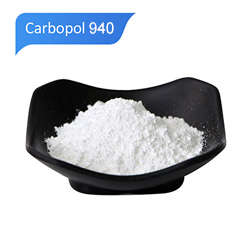- Products
- Moisturizing Skin Whitening Anti-aging Antibacterial Blend Thickener
-
Food Grade Sodium Hyaluronate Cross-linked Sodium Hyaluronate Cosmetic Grade Sodium Hyaluronate D-panthenol γ-Polyglutamic Acid Allantoin
Alpha Arbutin Beta Arbutin Kojic Acid Kojic Acid Dipalmitate 3-o Ethyl Ascorbic Acid Ascorbyl Glucoside
PDRN polydeoxyribonucleotide L-Ergothioneine Ghk-Cu Acetyl Hexapeptide-8 Dipeptide Diaminobutyroyl Benzylamide Diacetate
Salicylic Acid Azelaic Acid Alpha Bisabolol Potassium Azeloyl Diglycinate
Carbopol 940 Carbopol 980 Carbopol 680 Carbopol 981 Carbopol U20
- Antioxidant Joint Health Collagen Peptides Nutrition Enhancer
-
β-Nicotinamide Mononucleotide(NMN) β-Nicotinamide Mononucleotide(NMN) Nicotinamide Adenine Dinucleotide(NAD+) Glutathione Coenzyme Q10 Pyrroloquinoline Quinone(PQQ)
Chondroitin Sulfate Methyl Sulfonyl Methane Glucosamine Hydrochloride Glucosamine Sulfate Potassium Chloride N-Acetyl-D-Glucosamine Vitamin K2
Bovine Collagen Peptide Strawberry Flavor Collagen Peptide Vanilla Flavor Collagen Peptide Original Flavor Fish Collagen Peptide Fish Collagen Peptide Type II Collagen Peptide
DHA Algae Oil DHA Algae Oil Powder L-Theanine γ-Aminobutyric Acid Choline Glycerophosphate
 Food Grade Sodium Hyaluronate
Food Grade Sodium Hyaluronate Cross-linked Sodium Hyaluronate
Cross-linked Sodium Hyaluronate Cosmetic Grade Sodium Hyaluronate
Cosmetic Grade Sodium Hyaluronate D-panthenol
D-panthenol γ-Polyglutamic Acid
γ-Polyglutamic Acid Allantoin
Allantoin
 Alpha Arbutin
Alpha Arbutin Beta Arbutin
Beta Arbutin Kojic Acid
Kojic Acid Kojic Acid Dipalmitate
Kojic Acid Dipalmitate 3-o Ethyl Ascorbic Acid
3-o Ethyl Ascorbic Acid Ascorbyl Glucoside
Ascorbyl Glucoside
 β-Nicotinamide Mononucleotide(NMN)
β-Nicotinamide Mononucleotide(NMN) β-Nicotinamide Mononucleotide(NMN)
β-Nicotinamide Mononucleotide(NMN) Nicotinamide Adenine Dinucleotide(NAD+)
Nicotinamide Adenine Dinucleotide(NAD+) Glutathione
Glutathione Coenzyme Q10
Coenzyme Q10 Pyrroloquinoline Quinone(PQQ)
Pyrroloquinoline Quinone(PQQ)
 Chondroitin Sulfate
Chondroitin Sulfate Methyl Sulfonyl Methane
Methyl Sulfonyl Methane Glucosamine Hydrochloride
Glucosamine Hydrochloride Glucosamine Sulfate Potassium Chloride
Glucosamine Sulfate Potassium Chloride N-Acetyl-D-Glucosamine
N-Acetyl-D-Glucosamine Vitamin K2
Vitamin K2
- Industries
- OEM/ODM
- Support

















































